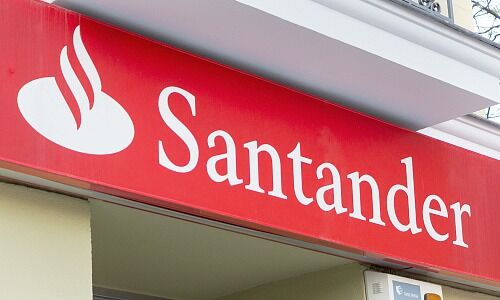Banks' Corona Jitters
Europe's biggest banks are bracing with hulking provisions in their most unpredictable business. It will take months before they know whether their worst fears will be born out.
Provisions against dud loans are proving contagious among Europe's heftiest lenders: Spanish champion swung to a first-half net loss of 1.1 billion euros ($1.3 billion), while Britain's Lloyd's, Anglo-Sino HSBC, and French banks BNP Paribas and Société Générale were all mauled.
The culprit isn't the caprice that is investment banking, nor too-aggressive foreign growth: instead, it was the respective lenders' standing as national champions in their home markets.
Signals Speak Volumes
If Europe continues its slide into a recession sparked by widespread shutdowns due to the pandemic, millions of savers and small- and mid-sized businesses will be washed along with it ‒ with highly uncertain results for the big banks.
The fact that the world's largest wealth manager, Switzerland's UBS, booked $268 million in provisions for its domestic retail and corporate clients arm speaks volumes: the Swiss market, of course, won't escape unscathed.
Peak Mid-2021
Bond watcher Mark Holman sees banks' cyclicity to blame: lenders are so heavily reliant on economic swings because they are inescapably tied to their respective home markets via sizable retail activities, the Twentyfour Asset Management portfolio manager said.
«The bold action from authorities will have saved this sector from brutal losses, but we will see losses regardless of action, albeit most likely delayed,» Holman said. «Similarly we expected corporate lending to be impacted by a huge swing to negative credit rating migration, as well as an overall spike in the default rate,» he noted.
Skirting The Worst?
Mainly corporate and retail vulnerability is what has caused trouble for banks in any given recession, Holman said, which also represents the major reason investors sell down the shares in times of crisis.
Since the lenders bolstered their capital cushions following the 2008/09 crisis, most are standing in more solid footing than previously. Holman said he is optimistic that banks like Barclays and Credit Suisse will manage to pile up more capital in the second half of 2020.
So confident that Holman already recommends buying bank shares: thanks to their ample capital, most lenders are no longer quite as cyclically vulnerable as most investors think, he notes. Courageous investors could cash in on a risk premium for betting that the worst-possible scenario won't come to pass.




























